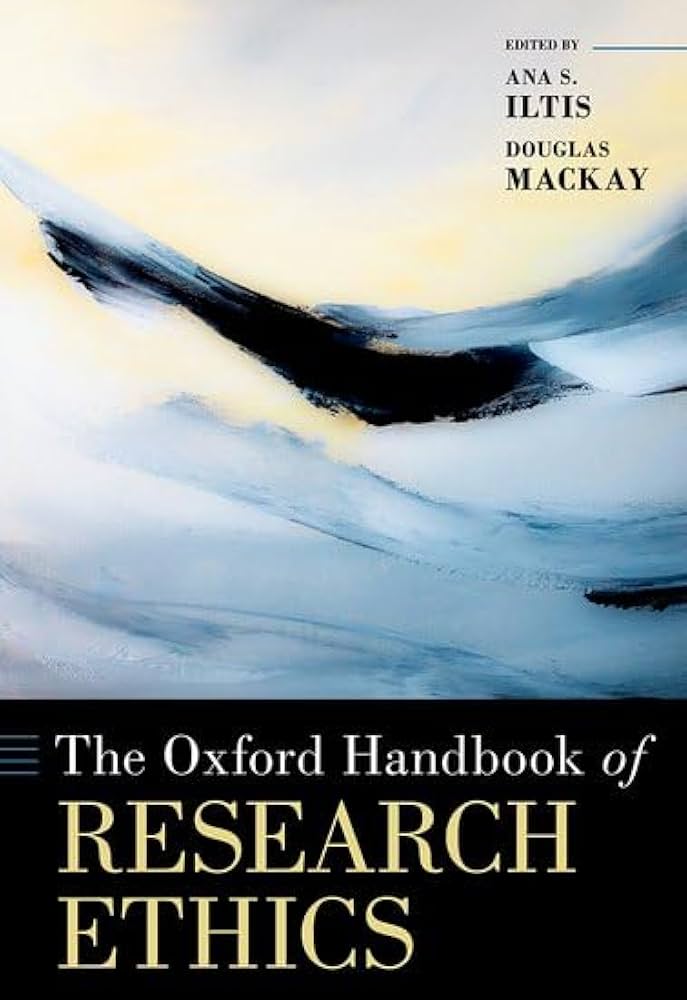Behind the Book: Q&A with Dr. Ana S. Iltis
By Erin Marlow, Communications Specialist in the Office of the Dean of the College
Dr. Ana S. Iltis, Professor of Philosophy and Director of the Center for Bioethics, Health, and Society, recently edited The Oxford Handbook of Research Ethics. The handbook, published by Oxford University Press in 2024, is a collection of essays about ethical issues in human research and written by leading authors across a wide range of disciplines. Along with her co-editor, Dr. Douglas MacKay, Dr. Iltis brings these perspectives together — whether from the fields of biomedicine, social science, or psychiatric research — to create a work that will help shape future research methods and scholarship.
Dr. Iltis recently spoke with the Dean’s Office about the editorial process and its role in the classroom.
What inspired you to work on this project?
I was invited by an editor at Oxford University Press to assemble and edit the Oxford Handbook of Research Ethics. This series publishes collections of new essays from leading scholars to examine specific fields; give an overview of critical issues and debates; and identify new issues and define the future of scholarship in those areas. As daunting as it was, I saw it as an incredible opportunity to think conceptually about an area I am passionate about. This involved assessing the field historically and in the present with an eye toward the future.
What was a major challenge that you faced in your research?
I would say that I faced two significant challenges. The first one, which I recognized as soon as I started to think seriously about what I wanted this volume to accomplish, was that for this volume to make a novel contribution, I wanted it to engage ethical issues in human research conducted in a wide range of disciplines and draw connections between authors who typically are not in dialogue with each other. To capture that breadth and identify the key contributors, I wanted to invite a co-editor, one whose areas of focus were different from mine, to join me. The Press accepted this proposal, and I had the pleasure of working with Dr. Douglas MacKay, Associate Professor of Public Policy, from UNC Chapel Hill. The second challenge was not nearly as easily solved – the COVID-19 pandemic! Understandably, many of our authors were forced to re-order their priorities. Submissions to the volume were delayed, with some contributors unable to complete their chapters. Similarly, peer reviews and chapter revisions often took longer than expected. Nevertheless, Oxford University Press did a fantastic job of publishing chapters online as the final versions were accepted, and the book appeared in print this year.
What would you say is the handbook’s unique contribution to the field?
The Oxford Handbook of Research Ethics brings together leading authors to address critical issues in human research ethics in a wide range of disciplines. One of the unique contributions this volume makes is that it includes authors from a wider range of disciplines than we typically see in the research ethics literature and brings their work into conversation in new ways. The volume covers biomedical, public health, and psychiatric research as well as research in the social sciences and public policy, among others. This kind of cross-disciplinary engagement creates space for new ways of thinking about the fundamental questions in research ethics, including how individuals and communities ought to be treated in the pursuit of new knowledge.
How do you bring your research into the classroom?
I involved students in my research in a range of ways. I have included many students in research projects that have culminated in publications in peer-reviewed journals and conference presentations. In some cases, students have learned how to do editorial work, including verifying citations and claims. I have even taught a class on public philosophy and bioethics in which some of the students worked with me to publish a course paper in a peer-reviewed journal. My research informs my teaching in many ways. My students are used to hearing about examples based on current or past research experiences. In some cases, my research is the source of problem-based learning exercises or inspires reading assignments from different disciplines. In my philosophy classes, I require reading from the philosophical literature, as well as other disciplines, and create problem-based learning exercises so that students learn to apply philosophical skills in different contexts.
The Oxford Handbook of Research Ethics


This kind of cross-disciplinary engagement creates space for new ways of thinking about the fundamental questions in research ethics, including how individuals and communities ought to be treated in the pursuit of new knowledge.
Dr. Ana Iltis

